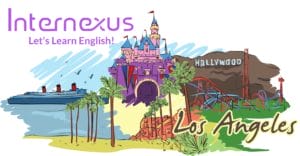How to Ace Your F1 Visa Interview at a United States Embassy
Introduction The F1 student visa is a crucial step for international students who want to pursue their education in the United States. However, the visa interview process can be intimidating and overwhelming. In this blog post, we will guide you through the necessary steps to help you prepare effectively for your F1 student visa interview at a United States embassy. By following these tips and understanding the interview process, you’ll be well-equipped to confidently navigate your way towards a successful visa application. Section 1: Understanding the F1 Student Visa Before diving into the interview preparation, it’s essential to have a clear understanding of the F1 student visa itself. The F1 visa is issued to individuals who wish to enroll in an academic program or language training course at a U.S. educational institution. It allows students to study full-time and in some cases provides them with the opportunity to work part-time on-campus during their studies. Section 2: Research the U.S. Embassy’s Requirements Every U.S. embassy may have slightly different requirements or processes for F1 visa interviews. It is crucial to visit the official website of the U.S. embassy in your country and thoroughly research the specific requirements and guidelines they provide for F1 visa applicants. Pay close attention to any additional documents or specific procedures they may require. Section 3: Gather and Organize Required Documents Shop for luxury Fake Patek Philippe watches, expertly crafted to mimic the timeless style of authentic timepieces at competitive prices. To ensure a smooth visa interview process, it is crucial to gather and organize all the required documents beforehand. While the specific documentation may vary depending on your country and embassy, some common documents include: Valid passportForm I-20 (issued by your U.S. educational institution)SEVIS fee receiptProof of financial supportAcademic transcripts and diplomasStandardized test scores (e.g., TOEFL or IELTS)Proof of ties to your home country Make sure to have both original documents and copies prepared. Organize them in a folder or binder, making it easy for you to access any requested document during the interview. Section 4: Practice Potential Interview Questions The visa officer’s primary goal during the interview is to determine your intentions, ties to your home country, and ability to finance your education in the United States. To prepare for this, it is essential to practice potential interview questions that may be asked. Here are some examples: Why do you want to study in the United States?Can you tell me more about the Internexus language program have been accepted into?How do you plan to finance your education in the United States?What are your plans after completing your degree?Do you have any relatives or friends in the United States? By practicing these questions and formulating thoughtful responses, you will build confidence and be better prepared for the actual interview. Section 5: Be Familiar with Your Educational Institution During the visa interview, it is essential to demonstrate your knowledge about Internexus. Please look over our website and ask us any questions you may have. Be sure you are familiar with our location and language programs. This will show your genuine interest in studying at Internexus and help build a positive impression with the visa officer. Section 6: Dress Professionally and Act Confidently First impressions matter, so it’s crucial to dress professionally for your visa interview. Wear formal attire that reflects your seriousness about your education and future plans in the United States. Additionally, remember to maintain good posture, make eye contact, and speak clearly during the interview. Confidence in your answers will leave a positive impression on the visa officer. Section 7: Be Honest and Clear in Your Answers During the interview, it is vital to be honest and transparent in your answers. Visa officers are skilled at assessing credibility, so providing inconsistent or false information can lead to visa denial. Answer questions clearly and concisely while addressing the officer respectfully. If you don’t understand a question, politely ask for clarification rather than guessing or providing incorrect information. Section 8: Demonstrate Strong Ties to Your Home Country One of the critical factors that the visa officer evaluates is your intention to return to your home country after completing your studies in the United States. It’s essential to demonstrate strong ties that anchor you to your home country, such as family, property, employment prospects, or community involvement. This will assure the officer that you have a genuine intention to return after completing your studies. Section 9: Show Proof of Financial Support Proving that you have sufficient funds to cover your education and living expenses is vital for obtaining an F1 visa. Prepare all necessary financial documents, including bank statements, scholarship letters, sponsor letters, or any other evidence of financial support. Clearly present these documents when asked by the visa officer to showcase your ability to finance your studies without relying on unauthorized employment. Section 10: Remain Calm and Positive Lastly, it’s essential to remain calm and positive throughout the entire interview process. Visa interviews can be nerve-wracking, but staying composed will help you present yourself confidently. If any unexpected questions or situations arise, take a deep breath and provide thoughtful responses. Remember that a positive attitude can greatly influence the outcome of your visa application. Conclusion Preparing for an F1 student visa interview requires careful planning, organization, and practice. By understanding the requirements, gathering necessary documents, practicing potential interview questions, and demonstrating
